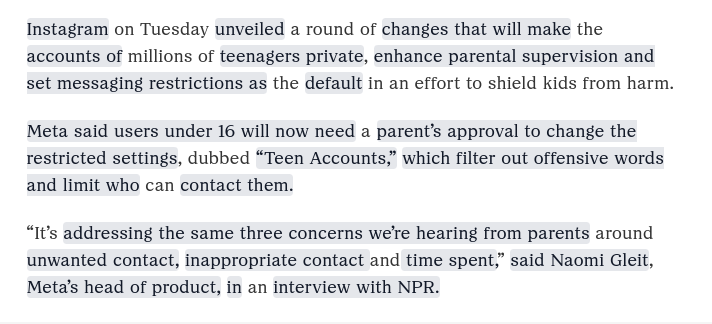this post was submitted on 17 Sep 2024
374 points (97.5% liked)
Technology
60450 readers
5230 users here now
This is a most excellent place for technology news and articles.
Our Rules
- Follow the lemmy.world rules.
- Only tech related content.
- Be excellent to each another!
- Mod approved content bots can post up to 10 articles per day.
- Threads asking for personal tech support may be deleted.
- Politics threads may be removed.
- No memes allowed as posts, OK to post as comments.
- Only approved bots from the list below, to ask if your bot can be added please contact us.
- Check for duplicates before posting, duplicates may be removed
Approved Bots
founded 2 years ago
MODERATORS
you are viewing a single comment's thread
view the rest of the comments
view the rest of the comments

Nothing can fix things because teenagers will not cooperate. If Instagram could identify all its teenage users, those users would move to a platform that couldn't. The only thing the restrictions achieve is a reduction in the market share of the platform with the restrictions.
I think it would be naive to think that they don't know this already. Not to say that I think you're making that argument, but that I think the losses are calculated against the benefit of the appearance of care that this move affords them. Sure, these new restrictions and tooling means that some parents will be more willing to allow their teens to engage with the platform, but there's no way that will outweigh the active user reduction in the targeted age range.
The real benefit is looking like they're doing stuff in a positive direction in the context of minors. I'm definitely expecting them to point at this move (and its voluntary nature) as an argument against future regulation proposals. Especially the part where they're ostensibly putting that control in parents' hands.